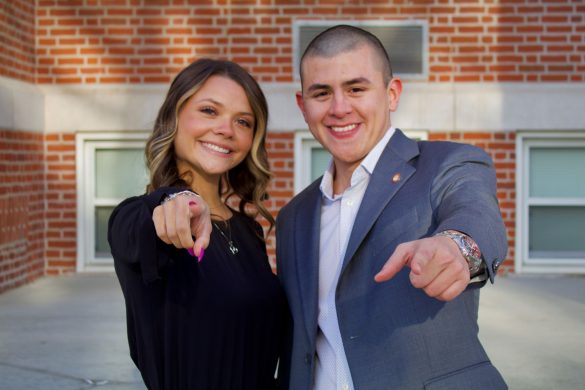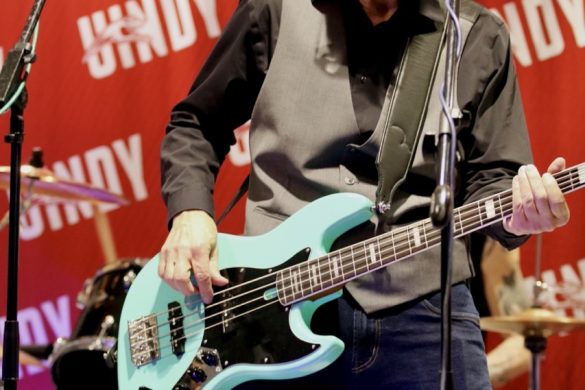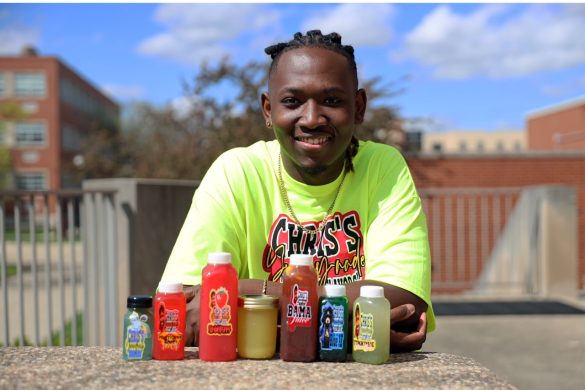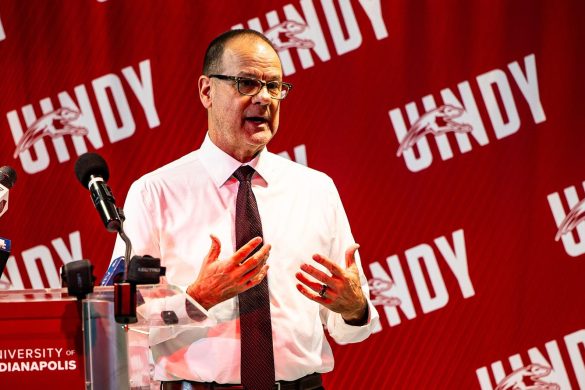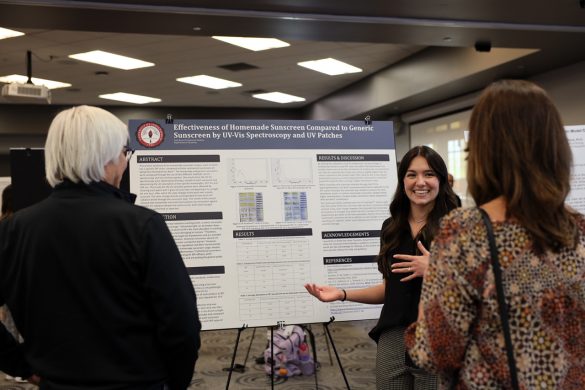Fifteen years ago, an audio revolution changed the multimedia landscape. In the absence of smartphones, there were instead MP3 players, and audio production software that could be found cheap or even free. All of this coupled with the rapidly developing Internet resulted in the birth of the podcast, what a Guardian article at the time described as “a new boom in amateur radio.”
According to General Manager of WICR radio and Instructor of Communication Scott Uecker, a podcast is pre-produced audio that is downloadable by a consumer to listen to at their own discretion. Uecker said he believes podcasts are a great way to learn.
“Podcasting is a wonderful way to expand your knowledge, expand your thinking, expand the scope of what you know about topics you’re interested in,” Uecker said. “If you’re interested in cooking, a cooking podcast might give you a new way to think about cooking, or recipes, or new ways to do whatever people who cook do. It’s a way to use your time efficiently. I think a lot of people consume podcasts when they’re commuting or working out on a treadmill. It’s a way to add value to certain times of the day when you can semi multitask.”
One on-campus podcaster who shares this sentiment is Assistant Athletic Director for Academic Advising Travis Smith. Smith produces his own podcast “Travis Talks,” originally called “Advise U.” Smith’s podcast discusses higher education and NCAA academic policy, featuring interviews and lessons explaining the link between the two.
“I’ve always worked in compliance and academics. The NCAA policies are mostly academic, but they’re also kind of legal, and I think a lot of people haven’t done both jobs,” Smith said. “If you’re going to do a podcast about something, it makes you continuously learn about it, and outside of just doing my day job, I think it’s good to have interests that are loosely tied to your career.”
Before he sits down to record anything, Smith said he plans ahead. He said he typically likes to have five episodic topics mapped out in advance, which, according to Smith, is a good strategy to avoid burning out and continue producing consistent content. Smith typically does a lot of research, constructing his content in much the same way a student would diligently construct a well-thought-out paper.
“My episodes would be chapters as if I was writing a book or a long paper, and I would just do bullet points and write out details,” Smith said. “So you script it. You obviously want to know what’s the catch, what do I want to teach people about this, or what is my opinion. And sometimes it’s going to be very quick, but sometimes you’ve got to do research and look at some interactive databases and challenge your own opinion.”
“A podcast has to be compelling, relevant, interesting, well-written, well-produced, and concise.”
With the advent of modern technology, according to Uecker, many believe that anyone can feasibly start a podcast. In fact, many sites, including Twitter and Reddit, have memed the phrase “let’s start a podcast” as the millennial version of “let’s start a band.” However, according to Uecker, there is a very clear distinction between simply making a podcast and actually making a good podcast.
“A podcast has to be compelling, relevant, interesting, well-written, well-produced, and concise. Just because I’ve got a microphone, and I like to hear myself talk does not make it a good podcast. And there are way too many of those out there,” Uecker said. “A good podcast is like anything else. It’s like a good book, a good radio bit, a good television show, or a good Netflix episode. It’s like any other medium.”
The medium’s diversity can be illustrated by the numerous podcasters scattered across campus. “The Flow,” an entirely student-run podcast, deviates from Smith’s in both content and presentation.
Leaning on the more casual side, while Smith’s was intended to educate and inform, the creators of this podcast, sophomore Communication majors Carlos Alarcon IV, Charon Von Berg, and Isaias Jackson, wanted to build a brand and entertain.
“We tend to focus mainly on sports and entertainment, with occasional jokes and clowning around,” Alarcon said. “There is a lot of work that goes into the episodes, including choosing new and current topics, researching stats and other essential information, editing the show, and making sure we distribute it everywhere in a timely manner.”
Yet another on-campus podcast showcasing the medium’s flexibility is the “Potluck Podcast,” organized by the English department’s Etchings Literary Magazine. This podcast, unlike Smith’s, is still very much in its infancy. According to Assistant Professor of English Liz Whiteacre, Etchings is attempting to explore different ways to make connections between artists and scholars.
“We are hoping to have conversations with professionals in the arts about their work that will help students engage with the art that they would like to produce in the future,” Whiteacre said. “If you have someone who is able to publish a book, and you read it and you enjoy it, to have that behind the scenes conversation and have access to professionals in that way, I think, is not only a productive, incredible experience for the student who is conducting the interview. But it’s an opportunity to disseminate that information, so that wisdom and advice can be passed on to any of the listeners of the podcast.”
According to Uecker, one of the true merits of podcasts is their capacity to tell distinctly different stories in distinctly different ways. Podcasts can be audio dramas, like the award-winning “Wolf 359,” or news gathering sources like NPR’s numerous podcasts. Regardless, according to an article from Forbes titled “Everything You Need to Know to Start Your Own Podcast,” the future of podcasts appears bright.
“People need to understand that podcasting is still very much in its infancy. The market value is still very, very small, but I think there’s incredibly great potential there, and there’s still a long way to go,” Uecker said. “The most successful podcasts are put out there by those who have already built their brand and following through some other media. You’re going to have some entrepreneurs who are going to have a hit here or there. But podcasting is a brand extension for media outlets and personalities. For the future, those who already know how to produce great audio content are in the best position to capitalize as the podcast consumption increases. If you want to be a good podcaster, becoming a good writer, tell stories well.”

